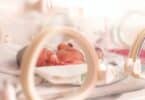Autism is still highly misunderstood, but as more and more research is conducted, scientists are finding notable physical and biological abnormalities in children diagnosed with autism. The most recent discovery is an intestinal bacterium, exclusive to autistic children.
Researchers at the Mailman School of Public Health at Columbia University examined the microorganism community in the intestines of both autistic and non-autistic children. Unlike other studies that only included stool samples, this study used actual tissue samples, which, according to Jorge Benach, Chairman of the Department of Microbiology at Stony Brook University and reviewer of the report, was what made the study so important.
“Most work that has been done linking the gut microbiome with autism has been done with stool samples,” Benach stated. “What may show up in a stool sample may be different from what is directly attached to the tissue.”
Benach is referring to a bacterial organism that belongs to the group Sutterella. It was found in the intestinal tissue of 12 out of 23 autistic children, but it was not found in even one sample from non-autistic children. Like autism, the bacteria itself is still very misunderstood.
“Sutterella has been associated with gastrointestinal diseases below the diaphragm, and whether it is a pathogen or not is still not clear,” says Benach. “It is not a very well-known bacterium.”
Scientists have known, based on other research studies, that autistic children with gastrointestinal symptoms generally have abnormalities, such as inflammation, in their upper and lower intestinal tracts. The digestive problems can sometimes be extremely serious and can often add to the already complex behavioral issues that autistic parents deal with.
The reason for the symptoms is unknown, as is its link to autism itself. It is also unknown as to whether the presence of the bacteria is a cause of autism or an effect of the condition. And while there is definitely more work to be done, researchers can’t help but display their enthusiasm for the potential doors opened with the most recent study.
“The relationship between different microorganisms and the host and the outcomes for disease and development is an exciting issue,” stated Christine A. Biron, the Britzenhoff Professor of Medical Science at Brown University; the editor for the study. “This paper is important because it starts to advance the question of how the resident microbes interact with a disorder that is poorly understood.”
Related Articles:







